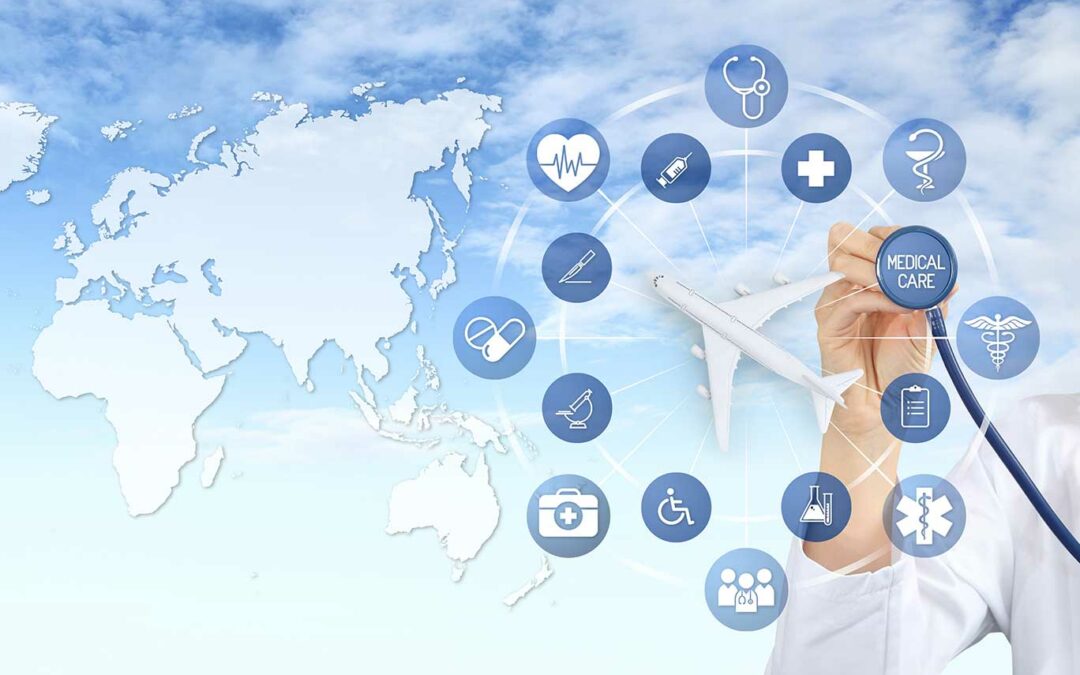No matter where you are in the world, healthcare comes with inherent risks. From potential misdiagnoses to surgical complications and side effects of medication, the practice of medicine is not an exact science and outcomes can never be fully guaranteed. Whether you’re receiving treatment in your hometown or across the globe, it’s crucial to be fully informed about the potential risks and to engage in a dialogue with your healthcare provider about these concerns.
Is it safe to get healthcare from an overseas provider?
The answer to this question is not a simple yes or no. It ultimately depends on numerous factors, including the specific healthcare provider you choose and the destination you are considering. Just like in your home country, some overseas providers may have better reputations and track records than others.
For instance, Thailand and Singapore are widely known to have impressive healthcare systems that attract medical tourists from around the globe. These countries have hospitals that are accredited by international organizations like the Joint Commission International (JCI), which ensures that they adhere to high standards of care. On the other hand, other countries may have healthcare systems that are not as advanced or regulated, and hence, may carry higher risks. It’s therefore essential to thoroughly research any overseas healthcare provider you’re considering, just as you would at home. Check their accreditations, patient reviews, and any other relevant information that can give you a clearer picture of the quality of care they provide.
Is it safe to travel?
Traveling for any reason, including for medical purposes, comes with its own set of risks. However, the level of risk can vary depending on where you’re going and your individual circumstances. For example, if you have a pre-existing condition that requires urgent medical attention or if you’re traveling to a remote location with limited access to emergency care, the risk may be higher. On the other hand, if you’re going to a well-developed country with excellent medical facilities and services, the risks may be lower. It’s crucial to carefully evaluate your own health status and the destination you’ll be traveling to before deciding if it is safe for you to travel.
Pros and Cons of Medical Tourism
As with any decision, there are both advantages and disadvantages to traveling for medical care. Please note the following:
4. language barriers
Potential cost savings
One of the primary factors that lead people to consider medical tourism is the potential for substantial cost savings compared to receiving treatment in their home country. This can be particularly enticing for individuals who do not have health insurance or are burdened by exorbitant out-of-pocket expenses. By exploring healthcare options abroad, patients can not only access affordable medical services but also benefit from the expertise and specialized treatments available in different regions. This combination of cost-effectiveness and expanded treatment choices makes medical tourism an increasingly popular choice for individuals seeking quality healthcare solutions.
Access to specialized treatments
In some cases, certain medical procedures and treatments may not be accessible or financially viable in your home country. However, these services might be readily available in other countries, presenting a tremendous advantage for patients in need. This may ensure that individuals will receive the specific medical care they require.
Exposure to different cultures and healthcare practices
Traveling for medical care not only offers the chance to receive treatment but also presents an exciting opportunity to immerse oneself in new cultures and gain insights into different approaches to healthcare. This experience can be incredibly educational and enriching, broadening patients’ perspectives while they embark on their healing journey.
On the other hand, there are potential drawbacks to medical tourism as well:
Increased risk of complications
When you travel for medical care, it often means being separated from your support system and familiar healthcare providers. This can create additional challenges when it comes to managing potential complications or unforeseen issues that may arise during your treatment. It’s important to be prepared for these situations and to establish a new support network and communicate effectively with your healthcare team in order to ensure the best possible outcome.
Language barriers
When receiving treatment in a foreign country, language barriers can create difficulties in communication between patients and their healthcare providers. This can make it challenging to fully understand the details of your treatment plan or express any concerns.
Travel-related stress
Dealing with a medical condition can already be a highly stressful experience, and when travel is added to the equation, it can further exacerbate this stress. Patients are faced with the challenge of carefully evaluating whether the potential benefits of seeking medical care in a different location outweigh the additional stressors that come along with it. Factors such as the distance to travel, the availability of specialized healthcare facilities, and the support network available at the destination all need to be taken into consideration.
Wrapping Up
The safety of healthcare overseas largely depends on various factors, including the specific provider and destination. However, it’s essential to remember that regardless of where you receive medical care, there will always be risks involved. It’s crucial to thoroughly research and evaluate all options before making a decision about traveling for medical treatment.
Ultimately, the most important thing is to prioritize your health and make an informed decision that is best for you. If you do decide to travel for medical care, be sure to communicate openly with your healthcare provider and follow all necessary precautions to ensure a safe and successful outcome. With careful planning and consideration, medical tourism can offer opportunities for affordable and specialized treatments, as well as cultural experiences that can enrich your life.


Recent Comments